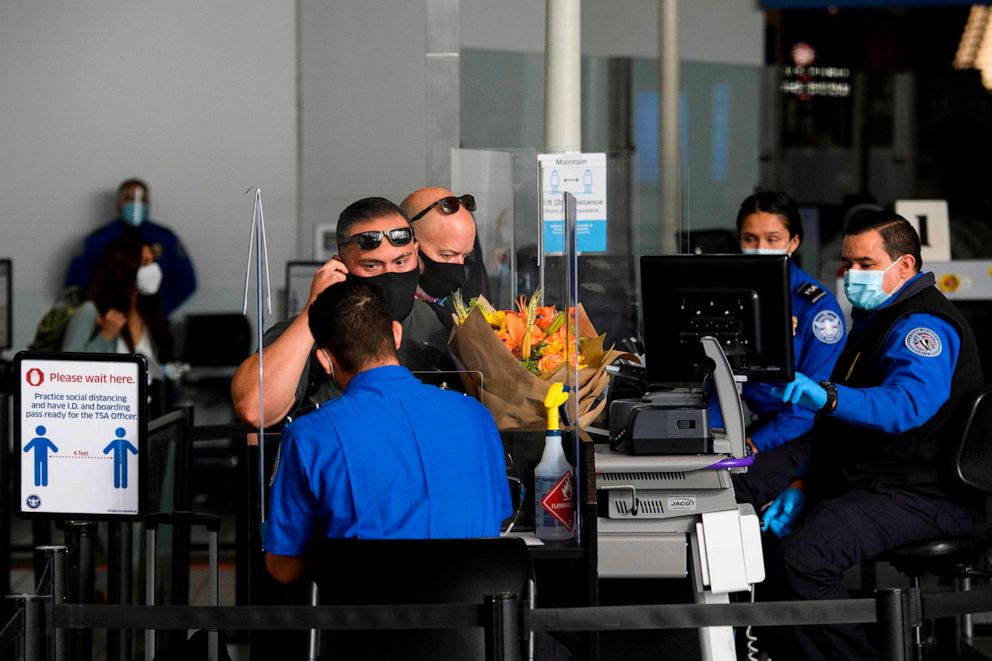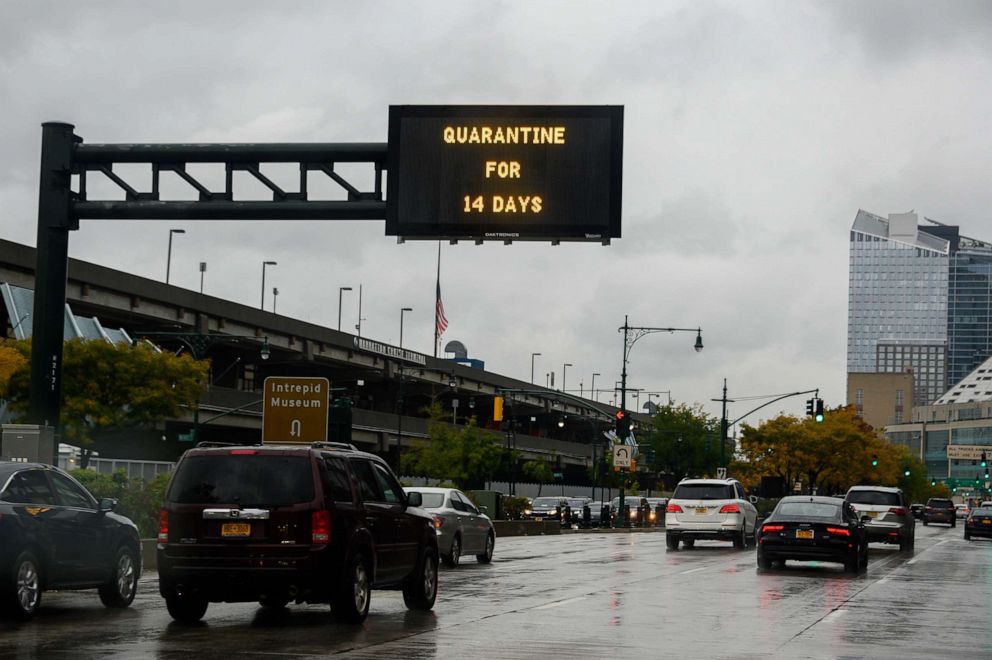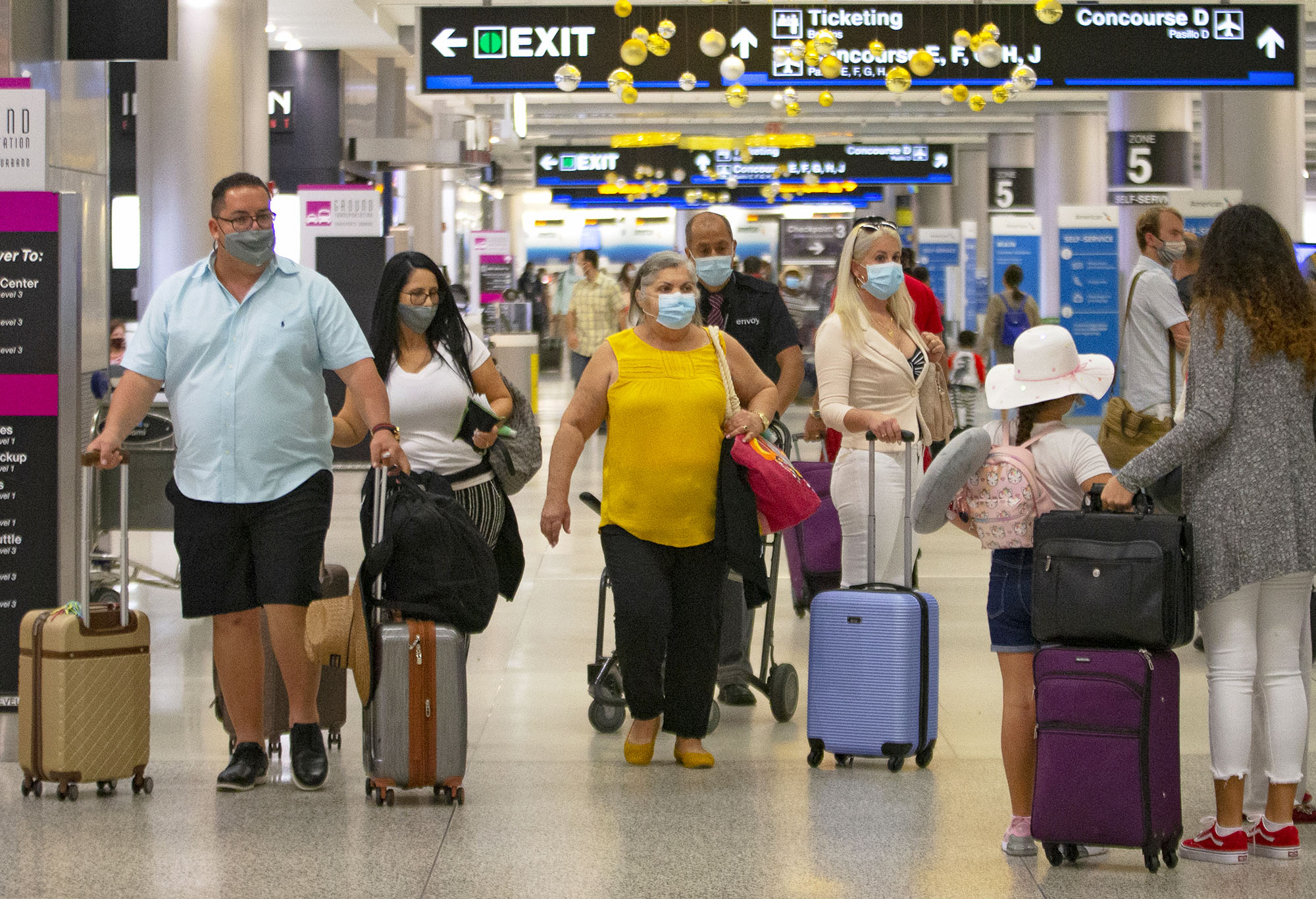Millions travel for Thanksgiving despite CDC warning
"Chances are that you will see a surge superimposed upon a surge," Fauci said.
Millions are already traveling for Thanksgiving, despite pleas from the Centers for Disease Control and Prevention to spend the holiday at home as the number of COVID-19 cases continues to rise.
Over the weekend, more than three million people passed through Transportation Security Administration checkpoints nationwide. Sunday marked the busiest day for air travel since the pandemic began with the agency screening 1,047,934 people.
"Travelers are navigating a slew of new factors from flexible work schedules, school schedules, to changing health safety advisories," TripIt spokesperson Kelly Soderlund told ABC News. "People are extending their stays with a 28% increase in weeklong lodging reservations. Big city metros aren't as popular for holiday travel as they usually are."

According to the American Automobile Association, a majority of Thanksgiving travelers will drive to their destination. AAA projects almost 48 million Americans are expected to hit the road over the holiday.

"It's not really the thing you want to hear before you go home ... don't travel," said Will Mason, a college freshman at Clemson University in South Carolina. "But I guess I don't really have an option there," Mason, whose classes are going virtual for the second semester, said.
The nation's top infectious disease expert Dr. Anthony Fauci expressed concern that a surge of Thanksgiving travelers could translate to a surge in cases before Christmas.
"If in fact you're in a situation when you do the things that are increasing the risk," Fauci said in a Washington Post interview, "the travel, the congregate setting, not wearing masks, the chances are that you will see a surge superimposed upon a surge. What we're doing now is going to be reflected two, three weeks from now."
Although the risk of COVID-19 transmission onboard a plane is "reduced to very low levels" with proper measures according to a recent Harvard study, the CDC is concerned with the ability to properly socially distance on planes and in airports, shuttles and rideshares. Longer flights and flights with layovers present an increased risk.
For drivers, the CDC recommends limiting stops for gas and food, and only riding in a car with people in your household.
"Travel may increase your chance of getting and spreading COVID-19," the CDC guidelines state. "Postponing travel and staying home is the best way to protect yourself and others this year."

If you must travel, always wear a mask, stay at least 6 feet away from those who do not live with you, and wash your hands, the CDC advises.
"Help is on the way," Fauci said. "We have at least two highly efficacious vaccines that would likely start be given to people at the highest risk, and the highest priority towards the middle and end of December, as we get into the subsequent months, more and more people will be able to be vaccinated."
ABC News' Stephanie Ebbs and Amanda Maile contributed to this report.




